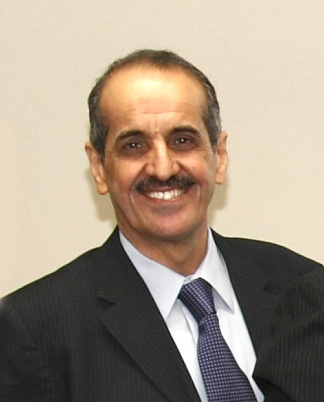Topic 1: US invasion of Iraq and its Impact on Regional Stability in the Gulf In the wake of the US invasion of Iraq in March 2003, the removal of Saddam Hussein and the subsequent dismantling of Iraqi institutions, the Gulf region watched with concern as the Iraqi state teetered on the brink of disintegration. The weakening of the Iraqi state institutions, the dissolution of the army and the establishment of a weak central government coupled with the unstable security situation during the last few years has had a major impact on the overall regional balance of power. Traditionally, the Gulf was characterized by balance and the rivalry between Iraq and Iran. For the GCC states, a militarily strong Iraq was crucial as it was the only state that could be a protective buffer between the GCC states and Iran. The US-led invasion and the consequent weakening of the Iraqi state have shifted the regional balance. Iran has emerged as a major player in Iraq and the wider region, directly influencing internal dynamics in state with its political, economic and security links to the country’s political factions. Moreover, over the past year, Iran has been able to strengthen its ties with Sunni and Shia radical groups such as Hamas and Hizbollah. With the deteriorating security situation in Iraq on one side and the perceived Iranian domination on the other, the GCC states began to rethink their policies and streamline their approach, and coordinate and cooperate on foreign policy issues. The most noticeable change took place in Saudi Arabia-Qatar relations. In 2007, both states put aside their differences that had lasted for many years and engaged in active regional diplomacy. The panel will look at the geo-strategic shifts in the Gulf region following the US invasion and occupation of Iraq. Papers will analyze the emergence of Iran as a major player in the Gulf and the broader Middle East as a fallout of the US invasion and the possible disintegration of Iraq. Papers may look at the relationships among the GCC states, Iran and the US and highlight strategies, if any, of the GCC states to preserve regional status quo and counter Iranian dominance. In light of the latest GCC-Iranian dispute over Iran’s interference in Iraq and the progress of the Iranian nuclear program, we invite papers which can contribute ideas on how to facilitate a GCC-Iran rapprochement in the long term. Topic 2: Rehabilitation Programs: A Soft Approach to Counter Terrorism Since September 11, 2001, a number of Arab states such as Saudi Arabia and Yemen have been coping with a new wave of terrorist attacks. Following this, governments have developed a comprehensive set of strategies to counter terrorism in the short and long term. In this context, some states have adopted the soft approach to counter Islamists and established rehabilitation and engagement programs which aim to re-educate hardliners and re-integrate them into society. Several states such as Saudi Arabia, Yemen, Iraq, Egypt and Algeria have applied this soft approach with varying degrees of success. The workshop’s objective is to analyze and compare the different rehabilitation programs which aim to combat terrorism. Papers shall examine questions on whether or not soft approaches to counter terrorism are reasonable strategies. They shall look at why rehabilitation programs are successful in some states but have limited impact in others. Moreover, the papers shall cast light on public discourse in different Arab States and see how different societies relate to these programs. Finally, the paper shall ask whether these programs are a successful strategy to counter terrorism in the long run. Topic 3: Iran and the Bomb: Internal debates about the state's Nuclear Program Since 2003, the Iranian nuclear program has been a source of concern for the GCC states and the international community. Some credible evidence had emerged by then pointing to the possibility that the Iranian nuclear program could have military dimensions. Since that time the international community, the EU, US and UN Security Council joined together and imposed sanctions to pressurize Iran to halt nuclear enrichment and other related activities. In 2008, the US National Intelligence Council (NIC) released its intelligence estimate of the Iranian nuclear program stating that Iran had abandoned its military nuclear program. Many experts took the NIC report as proof that Iran is, in fact, receptive to external pressure and could adapt its policy.
July 22-24, 2025, Cambridge UK
3 DAYS / 12 Workshops
MORE THAN 300 ACADEMIC PAPERS
Developing and Agenda for Security Studies in the Gulf
Topic 1: US invasion of Iraq and its Impact on Regional Stability in the Gulf In the wake of the US invasion of Iraq in March 2003, the removal of Saddam Hussein and the subsequent dismantling of Iraqi institutions, the Gulf region watched with concern as the Iraqi state teetered on the brink of disintegration. The weakening of the Iraqi state institutions, the dissolution of the army and the establishment of a weak central government co ...
The aim of the workshop is to prove that external pressure is useful to persuade Iran to take a renewed look at its nuclear program and, given the right incentives, Tehran can modify its policies and objectives. The workshop shall shed some light on the rationale of the Iranian decision-making process with regard to the state's nuclear program. Papers shall focus on the discourse and internal debates among the Iranian elite and the wider public.

